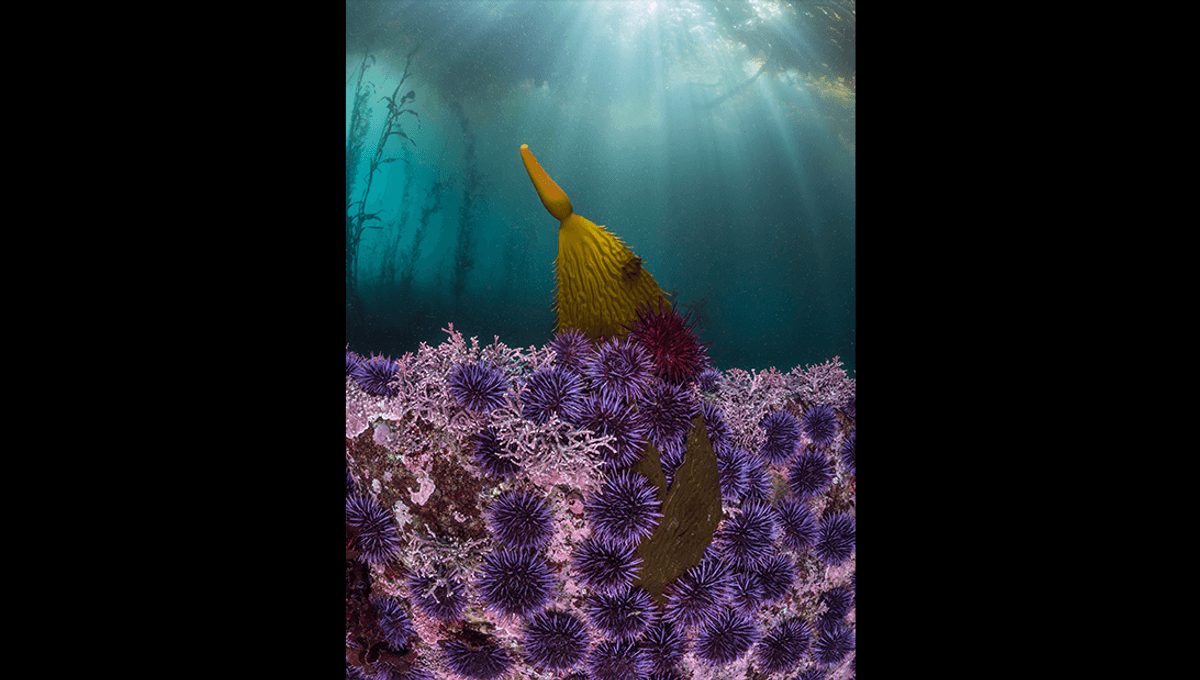
This article first appeared in Issue 13 of our free digital magazine CURIOUS.
Urchins get a bad rap for kelp forest degradation, but a BigPicture Natural World Photography Competition winner by Kate Vylet recently shone a light on the good they do as detritivores.
By nibbling up the rubbish that’s fallen to the seafloor, they can clean up while also moving the energy they consume up the food chain. Plus, they’re pretty funky li’l guys.
Subscribe to our newsletter and get every issue of CURIOUS delivered to your inbox free each month.
As Vylet describes in the video above, they’re also just trying to do their best in a changing world. When urchins have been pictured piling on top of live kelp, it’s when warm water events have killed off kelp forests. Basically, they were hungry and trying to get any food they could – who could fault them for that?
But when Vylet took the winning photo, the forest had recovered, and the urchins were back to their usual, strictly detritus-based diet, which the marine scientist and photographer believes shows that these ecosystems “will find their balance”.
CURIOUS magazine is a digital magazine from IFLScience featuring interviews, experts, deep dives, fun facts, news, book excerpts, and much more. Issue 16 is out now.
Source Link: Hard Working Urchins Don’t Deserve Their Bad Reputation